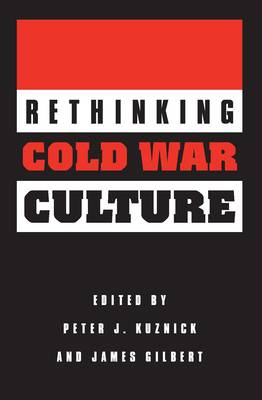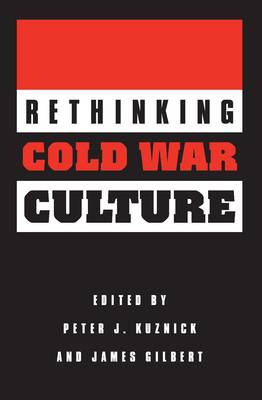
- Afhalen na 1 uur in een winkel met voorraad
- Gratis thuislevering in België vanaf € 30
- Ruim aanbod met 7 miljoen producten
- Afhalen na 1 uur in een winkel met voorraad
- Gratis thuislevering in België vanaf € 30
- Ruim aanbod met 7 miljoen producten
Zoeken
Omschrijving
This anthology of essays questions many widespread assumptions about the culture of postwar America. Illuminating the origins and development of the many threads that constituted American culture during the Cold War, the contributors challenge the existence of a monolithic culture during the 1950s and thereafter. They demonstrate instead that there was more to American society than conformity, political conservatism, consumerism, and middle-class values. By examining popular culture, politics, economics, gender relations, and civil rights, the contributors contend that, while there was little fundamentally new about American culture in the Cold War era, the Cold War shaped and distorted virtually every aspect of American life. Interacting with long-term historical trends related to demographics, technological change, and economic cycles, four new elements dramatically influenced American politics and culture: the threat of nuclear annihilation, the use of surrogate and covert warfare, the intensification of anticommunist ideology, and the rise of a powerful military-industrial complex. This provocative dialogue by leading historians promises to reshape readers' understanding of America during the Cold War, revealing a complex interplay of historical norms and political influences.
Specificaties
Betrokkenen
- Auteur(s):
- Uitgeverij:
Inhoud
- Aantal bladzijden:
- 240
- Taal:
- Engels
Eigenschappen
- Productcode (EAN):
- 9781560988953
- Verschijningsdatum:
- 22/06/2010
- Uitvoering:
- Paperback
- Formaat:
- Trade paperback (VS)
- Afmetingen:
- 149 mm x 227 mm
- Gewicht:
- 344 g

Alleen bij Standaard Boekhandel
+ 83 punten op je klantenkaart van Standaard Boekhandel
Beoordelingen
We publiceren alleen reviews die voldoen aan de voorwaarden voor reviews. Bekijk onze voorwaarden voor reviews.











